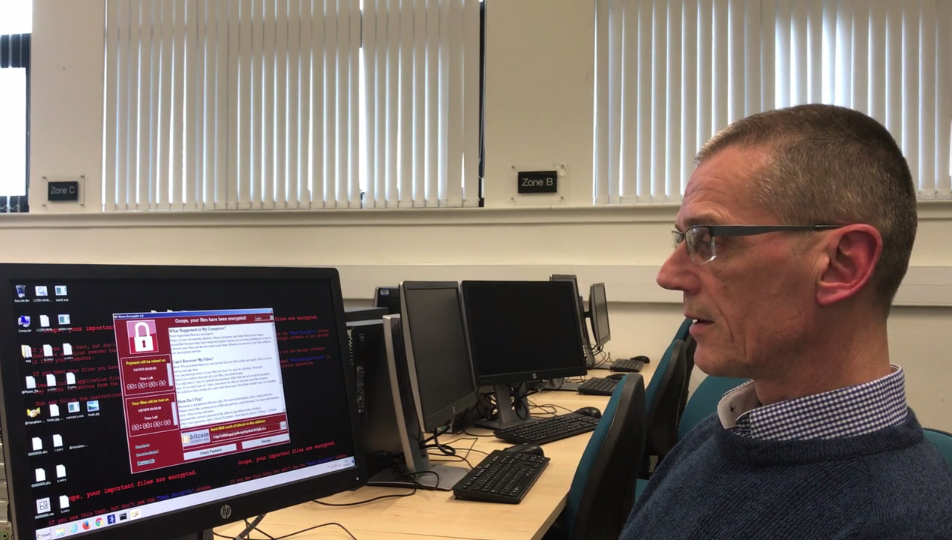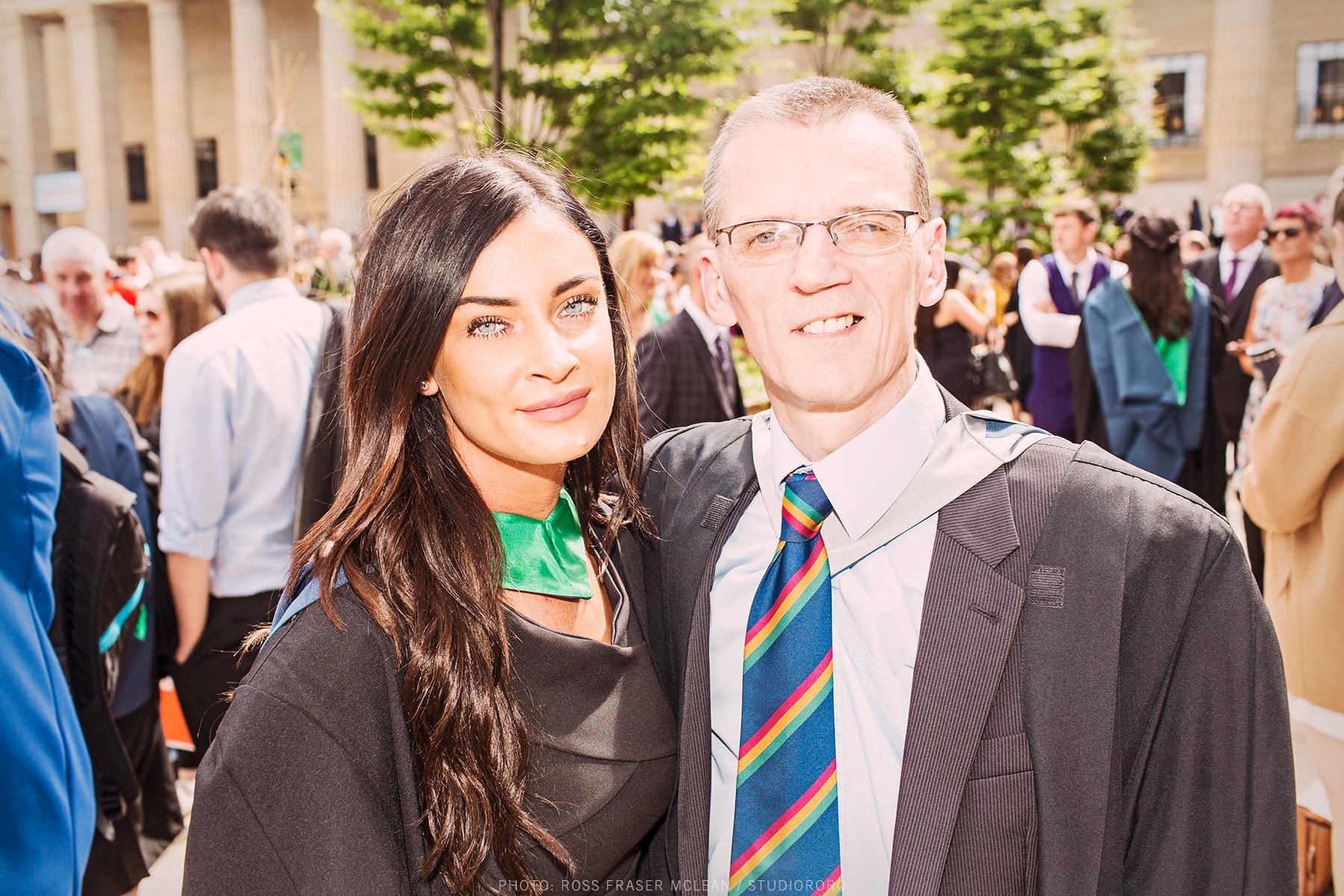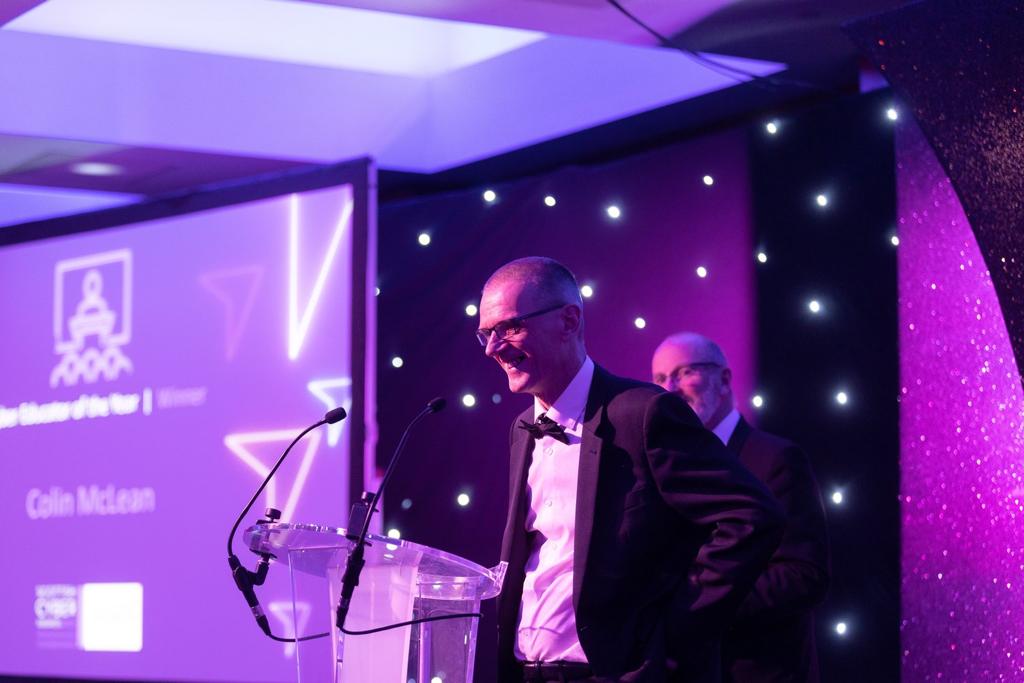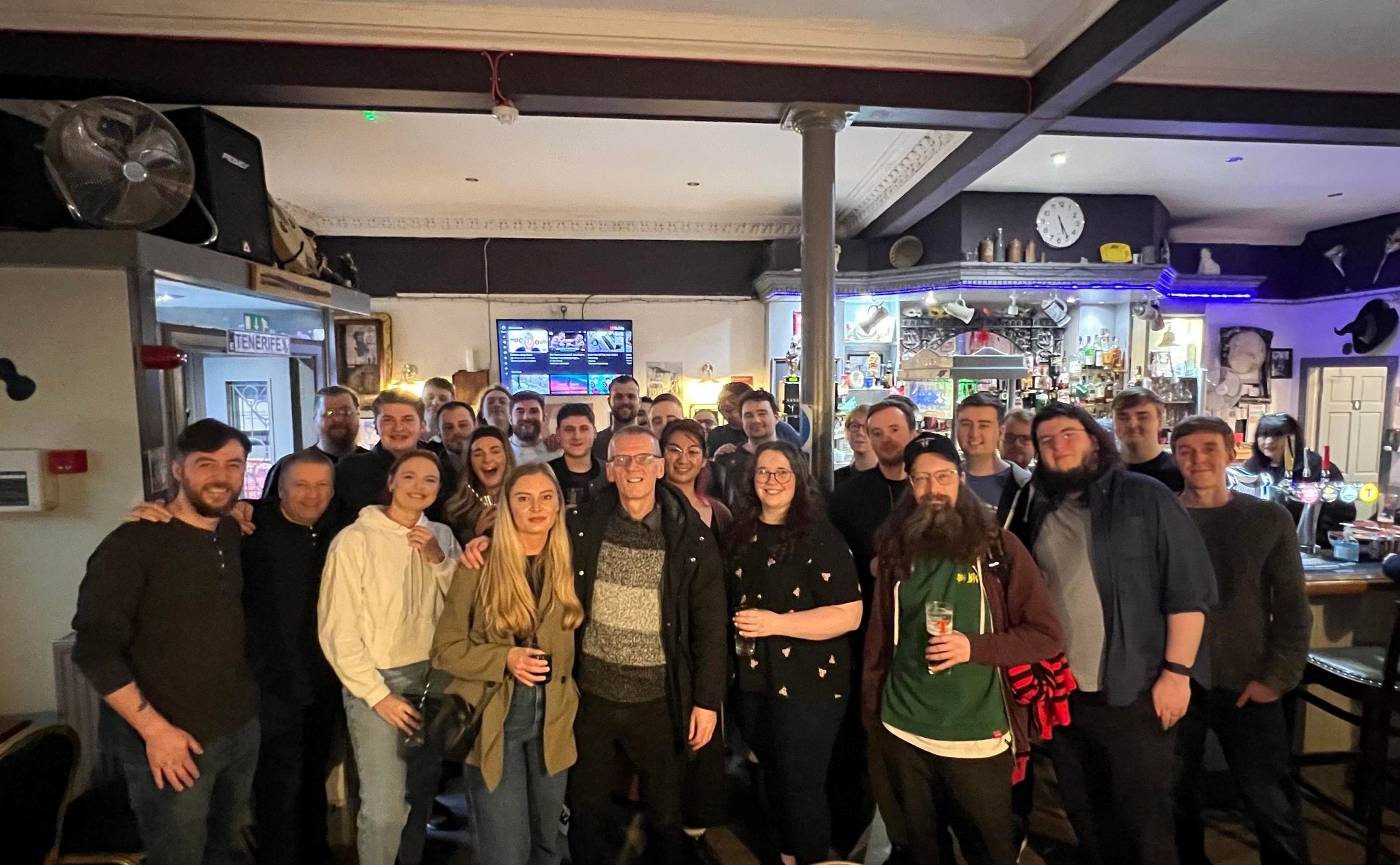Pause carousel
Play carousel

The founder of the world’s first Ethical Hacking degree is retiring from Abertay University.
Colin McLean was instrumental in setting up the first ever cybersecurity course where students were taught an offensive security approach, training in how IT systems can be exploited and to understand the mindset of a hacker.
The initially controversial programme has since proved a global success story, with students coming from all over the world to study in Dundee and the quality of the BSc (Hons) Ethical Hacking course recognised by the National Cyber Security Centre as part of Abertay’s gold-level Academic Centre for Excellence in Cyber Security Education recognition.

Colin’s journey with Abertay began long before the University was formally established, attending Bell Street campus in 1985 as a Mechanical Engineering student, at what was then Dundee College of Technology.
On graduating, he spent three years working in robotics at Ninewells Hospital, Dundee, before returning to become a lecturer in Robotics, Computer Aided Design, Programming and Mechatronics.
Around the time that the institution gained University status and became Abertay in 1994, Colin’s focus began to shift away from engineering and towards computer networking. However it wasn’t until an innovative Knowledge Transfer Partnership with Dundee-based, NCR, in 2004 that the seeds for Ethical Hacking education were planted.
“We were looking at the security of their cash machines, conducting a risk analysis of any vulnerabilities and essentially trying to hack into these units to test for any weaknesses,” Colin said.
“Our contact at NCR at the time said it would be great to have graduates coming through with this offensive skillset – looking at the problem from the opposing point of view. Clearly there was no manual for hacking into a cash machine, but I knew at that stage a demand for penetration testing was starting to form in the industry. I suspected that cybersecurity was going to become absolutely massive, which has turned out to be the case.”

After developing the first outline for an initial BSC (Hons) Ethical Hacking and Countermeasures course, Colin pitched the concept to senior management and the programme was launched in 2006.
“We knew what the concerns of those outside the cybersecurity sector were likely to be - ‘how do you know students won’t hack the government’, ‘how do you know they won’t learn how to cover-up a murder or create bombs’ - and I’ve lost count of the amounts of times we were asked these in the early days. It did take some courage on the University’s behalf to go for it, but it turned out to be a great decision - I knew it was going to be a specialist course but that it could be huge for the University. As we’re now much more comfortable with today, we know that cybercriminals are going to find ways to engage in nefarious acts, so to teach students the ethics and equip them with the skills needed to protect organisations was always the right option. We did some initial training down in Brighton and created a module at first and then the degree programme grew out from there. In my view we were possibly even a couple of years too early as cybersecurity really took off from 2008 onwards – but it was important to be in from the start.”
The Division of Cybersecurity has grown significantly alongside Ethical Hacking and Abertay now hosts Abertay cyberQuarter, Scotland’s centre for cybersecurity research, development and innovation, which is funded by the UK and Scottish governments through the Tay Cities Region Deal.
Colin, who was named Cyber Educator of the Year at the 2021 Scottish Cyber Awards, said some of his proudest moments had been watching the success of his students, including the work of Abertay Ethical Hacking Society, which organises the annual Securi-Tay conference – Europe’s largest student-led cybersecurity event.

He added: “The HackSoc (Abertay Ethical Hacking Society) is such a great community and they’ve gone from strength to strength over the years, organising some fantastic work and events. A lot of them came back to Securi-Tay the year that I was celebrating my 60th birthday. I’d say some of my proudest moments have come through others - including getting to teach Ethical Hacking to my daughter as part of her degree, and also some of the personal successes of the many other students who’ve gone on to do great things in the industry. It’s been a pleasure to work with them and so many great colleagues over the years.”

Dr Natalie Coull, Head of the Division of Cybersecurity at Abertay University said: “It’s been a pleasure to work with Colin over the years and learn from his expertise in Ethical Hacking. As a former student of his in the 1990s, and a colleague since 2006, I know I am one of many whose career wouldn’t have taken the path it has without his involvement. He’s helped shape the careers of a significant number of cybersecurity graduates and ultimately helped to raise the profile, and importance, of cybersecurity at a national and international level."